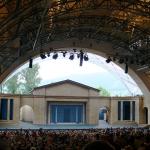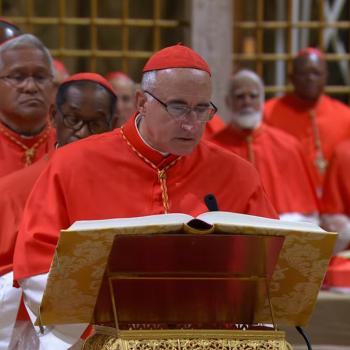During my freshman year in college at a secular university, there was a requirement to take either an introductory class on the Bible or a general religion course. I opted for the second choice. My professor was a German Catholic who specialized in Islam. An assignment early in the semester was to read the Book of Genesis in order to discuss the similarities between the stories within it and various origin stories of ancient Mesopotamian civilizations. As I opened the Bible I had purchased for the course, I began to read, “In the beginning, when God created the heavens and the earth – and the earth was without form or shape, with darkness over the abyss and a mighty wind sweeping over the waters – then God said: let there be light, and there was light.”
I had been reading many books for various classes, but a thought came into my mind as I read Genesis. “This is not just another book to study; this is what I believe. This book is different from all other books.” This simple yet profound thought deepened as I read books by the Jewish author Chaim Potok – I had been on a kick to read all of his novels after reading My Name is Asher Lev in high school. I read In the Beginning where a young, bright Polish young man from a devout Jewish family discovers Biblical scholarship which at times was in disagreement with what he learned from his father and his yeshivah. As an adult, David resolved his inner conflicts between faith and academia to became a successful Biblical scholar while retaining his faith.
The Bible certainly is different. We believe God has inspired men throughout the centuries to write this collection of books which the Church has recognized as containing everything that is necessary for our salvation. To read the Bible is not just to read another book. Written by a variety of authors in different genres and throughout the centuries, the Bible remains ever living and ever pertinent because it is the living Word of God.
Before the 1960s, Catholics were cautioned in regards to reading the Bible on their own; mostly because it requires adequate preparation to properly understand it. Since the 1960s, the Church has actively promoted the personal study and reading of Scripture. Beyond that, the readings proclaimed at Sunday Mass were greatly expanded with a new three-year-cycle lectionary compared to the one-year-cycle that existed before. If a Catholic attends Mass every Sunday for three years straight, he or she will hear proclaimed 40.9% of the New Testament. If that individual also attends daily Mass and Feast Days in addition to Sunday Mass, he or she will have heard 71.5% of the New Testament. This is compared to 3.7% and 13.5% respectively before the liturgical reforms of the Second Vatican Council.
God speaks to us through his Sacred Word – he confirms our desires, consoles us at the right time, and convicts us so we may repent. Saint Augustine famously heard children chant, “Take up and read,” which he interpreted as picking up the Bible. He took it, opened it and read, “let us walk properly as in the daytime, not in orgies and drunkenness, not in sexual immorality and sensuality, not in quarreling and jealousy. But put on the Lord Jesus Christ, and make no provision for the flesh, to gratify its desires.” The passage of Saint Paul convicted Augustine of his past disordered life, and led to a conversion. It confirmed his desire to follow God, and gave him the strength to make the necessary change.
The Bible is not just another historical and spiritual book. Inspired by God and written by men, it contains all that we need to achieve salvation. We revere it because we recognize that God manifests Himself through its contents, guiding us personally toward greater fulfillment and joy. It is not just another book to study; it is what we believe.
Picture taken from the public domain.












